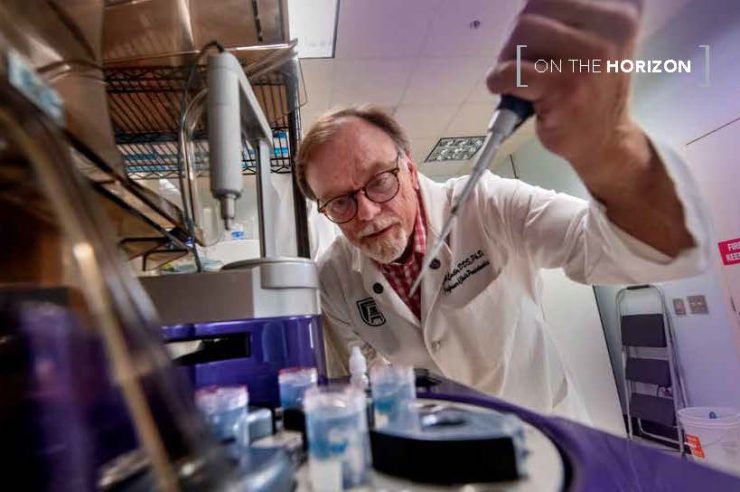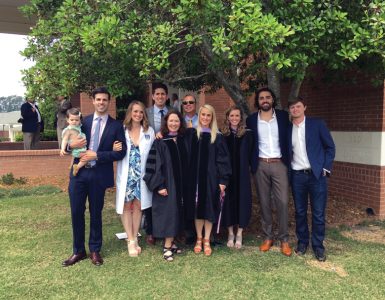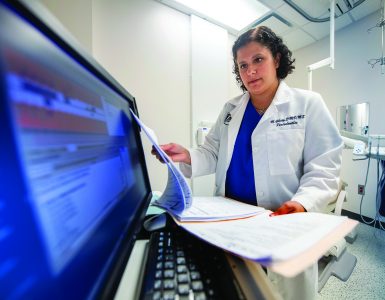A $1.8 million National Institutes of Health grant is supporting DCG researchers as they probe the relationship between aging and gum inflammation — and, crucially, how to head it off at the pass.
The five-year grant, funded by the National Institute of Dental and Craniofacial Research, involves injecting nanoparticles into the gums of mice with induced periodontitis or similar conditions. The nanoparticles are customized extracellular vesicles, which have proven to be highly effective at reprogramming the immune response to fight diseases including cancer, infectious diseases and autoimmune diseases.
“Exosomes were first discovered in the 1980s and were originally thought to be just cellular waste products,” says Dr. Christopher W. Cutler, chair of the DCG Department of Periodontics. “This is the first study to apply exosomes derived from immune cells to treat periodontitis.”
Using a mouse model, as well as collecting samples of hundreds of dental patients for study and comparison, Cutler and his colleagues hope the therapy will target the increased risk of periodontitis in elderly patients. This gum inflammation can lead to tooth loss as well as systemic disease.
“Older people start to develop immune senescence — a deterioration of the function of immune cells,” says Cutler. “The immune cells aren’t as functional, and we think they secrete pathogenic exosomes — bad exosomes — which can transfer senescence to normal cells and make the condition much worse.”
Immune senescence increases the risk of many age-related diseases, including periodontitis, but Cutler thinks those cells are salvageable. “We already have extensive preliminary data indicating these nanoparticles inhibit degenerative bone diseases by reprogramming cells from a TH17 (unhealthy) response to a T-reg (healthy) response.” He has applied for a second grant to delve deeper into immune senescence.
His collaborators include Drs. Yutao Liu and Mark Hamrick in the Medical College of Georgia Department of Cellular Biology and Anatomy; Dr. Ali Arbab in the MCG Department of Radiology; Dr. Mahmoud Elashiry, a DCG periodontics resident; and Dr. Ranya El Sayed, assistant professor of periodontics. “It’s definitely a collaborative effort,” Cutler says.
As the studies continue, he reminds patients that excellent home hygiene — eating a healthy diet, refraining from tobacco products, brushing and flossing regularly — is their best defense against periodontitis.









